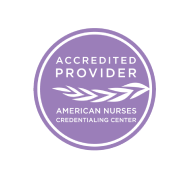Title: AANP vs. ANCC: Choosing the Right Nurse Practitioner Certification Exam
For aspiring nurse practitioners, choosing the right certification exam is a significant step toward career advancement. The two main certifying bodies, the American Academy of Nurse Practitioners (AANP) and the American Nurses Credentialing Center (ANCC), offer exams that lead to respected credentials but differ in focus, format, and eligibility requirements. In this blog post, we’ll explore the similarities and differences between the AANP and ANCC exams to help you decide which path is best for you.
A Quick Overview of AANP and ANCC Certifications
Both AANP and ANCC certifications are designed to verify the knowledge and skills of nurse practitioners in primary care and specialized practice. Passing either exam results in certification that enables you to work in most states, though some employers may prefer one certification over the other based on their specialty requirements. Here’s a breakdown of what each exam entails:
- AANP (American Academy of Nurse Practitioners Certification Board): Primarily for family nurse practitioners (FNPs) and adult-gerontology primary care nurse practitioners (AGPCNPs), the AANP exam focuses heavily on clinical knowledge and practice relevant to primary care.
- ANCC (American Nurses Credentialing Center): In addition to FNP and AGPCNP exams, ANCC offers certifications for a broader range of specialties, including psychiatric-mental health nurse practitioners (PMHNPs) and acute care nurse practitioners. The ANCC exam covers clinical knowledge and includes content on professional issues, theory, and research.
Key Differences Between the AANP and ANCC Exams
1. Exam Content and Focus
- AANP Exam: Primarily clinical in focus, the AANP exam covers practical skills and knowledge needed in primary care settings, emphasizing assessment, diagnosis, planning, and evaluation. It does not include non-clinical topics like professional roles or ethics.
- ANCC Exam: While the ANCC exam also assesses clinical skills, it includes a broader range of content. Test-takers will encounter questions on professional issues, research, and theory, in addition to clinical topics. This broader scope makes the ANCC exam a better fit for those interested in advanced practice leadership roles.
2. Question Format
- AANP: The AANP exam has 150 multiple-choice questions, with a clear focus on real-world clinical scenarios relevant to primary care.
- ANCC: The ANCC exam also consists of 150 questions but includes various formats such as multiple-choice, drag-and-drop, and hotspot (image-based) questions. The variety in question format tests a range of skills and may appeal to those who prefer a mix of question types.
3. Eligibility Requirements
Both exams require an active RN license, a graduate-level NP program degree (master’s, post-master’s, or doctoral), and clinical hours specific to your NP program. While eligibility requirements are similar, it’s crucial to verify with each certifying body, as these may change.
4. Certifications Offered
- AANP: AANP certification focuses on primary care with FNP and AGPCNP options.
- ANCC: ANCC offers a wider array of certification options, including FNP, AGPCNP, PMHNP, and acute care specialties, which may be ideal for those pursuing roles in mental health or critical care.
5. Exam Cost and Recertification
- AANP: The cost for AANP members is approximately $240, while non-members pay $315. Certification must be renewed every five years, requiring continuing education and practice hours.
- ANCC: The ANCC exam fee for members is around $295 and $395 for non-members. Like AANP, ANCC certification also requires renewal every five years, with specific continuing education and practice requirements.
Choosing Between AANP and ANCC: Factors to Consider
When deciding between the AANP and ANCC exams, consider your long-term career goals, preferred exam style, and any specialty requirements. Here are a few factors to help guide your choice:
- Career Goals: If you’re interested in a career focused solely on primary care, the AANP certification may be the best choice due to its clinical focus. However, if you envision yourself in roles that involve leadership, research, or education, ANCC certification provides broader coverage.
- Exam Style Preference: Some test-takers prefer the straightforward, clinically-focused questions on the AANP exam, while others enjoy the varied question formats on the ANCC exam, which include professional concepts.
- Future Specializations: If you may eventually transition into a specialized area like mental health, critical care, or advanced leadership, ANCC certification may be beneficial as it aligns with more specialty areas.
- Employer Preferences: Some healthcare employers have preferences for one certification over the other. Researching job listings and talking to mentors or potential employers can clarify if one exam aligns better with your professional plans.
Preparation Tips for Both Exams
Regardless of which exam you choose, solid preparation is essential. Here are a few tips:
- Review the Test Blueprint: Both AANP and ANCC provide a blueprint that breaks down content areas, so use these to guide your study plan.
- Invest in Study Resources: Popular study guides like Fitzgerald, Leik’s, and Hollier provide comprehensive overviews of exam topics and practice questions tailored to each exam.
- Practice with Question Banks: Online question banks such as BoardVitals and APEA offer AANP- and ANCC-specific questions. Practicing under timed conditions can help improve your pacing and confidence.
- Focus on High-Yield Topics: Prioritize areas like pharmacology, health promotion, and chronic conditions like diabetes and hypertension, which frequently appear on both exams.
Conclusion
Whether you choose the AANP or ANCC certification, both exams lead to valuable credentials that validate your knowledge, open new career opportunities, and support professional growth. The decision ultimately depends on your career goals, test style preference, and specialty interests. With thorough preparation and a clear understanding of each exam’s focus, you’ll be ready to take this significant step forward in your nurse practitioner career.

